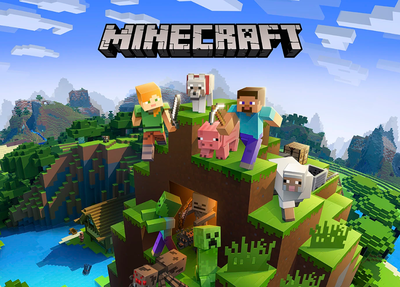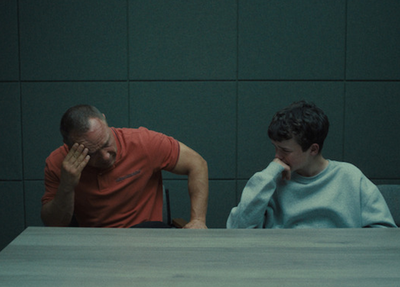Playing Games – Part One
Rebecca on Nov. 15, 2021
In part one of our series about video game classification, Rebecca sat down for a definitely unedited* chat with one of our Classification Advisors about what’s involved when you get to play games for your job at Te Mana Whakaatu, Classification Office.
So how long have you been in this gig?
I‘ve been working here close to 11 years now.
If you’ve been doing this for over a decade, at home do you still play games?
Yes. I’ve played games my whole life, since the original NES (Nintendo Entertainment System), and we also had an old DOS PC back when Windows 1.0 was a thing. I’m still playing both console and PC games today.
You’ve got a great background in gaming. You’ve got all the history of the original computer games that came out.
Kind of. I was - and still am - a nerd. Back then I mainly played role-playing games.
I also loved role-playing games! I was really into the Sierra Quest games (Kings Quest, Space Quest). Also the Lucas Art games: the Monkey Island series is my all-time favourite, and the Indiana Jones and the Fate of Atlantis.
Those were awesome, yes I loved those.
Would you say that PlayStation or Xbox were what changed the gaming landscape?
It was before my time but Atari was huge first, then Nintendo and SEGA. PlayStation certainly brought gaming into the mainstream, and then Xbox popularised taking consoles online. But like, I don’t think the rise of games are attributable to one single moment or company. Though on consoles today there’s the whole addition of gaming subscription services, which is something we’re still seeing play out.
Like Netflix, but for games. Well even Netflix are now launching games!
Yeah. It’s something that’s filling out with like indies and sort of medium budget titles instead of just having like five big ‘tentpole’ games a generation. Which is good because games are expensive.
I want to know, how does one approach rating games? Do you get to sit in a room and play a game all day? Is it a great gig?
Yes and no! It is awesome. Sometimes you get to play that new game from a favourite developer. But you can’t talk to anyone about it, so that sucks. Also because a lot of games get finished quite late, you’re playing a game late in the development cycle that’s mostly finished. It’s not an ideal experience. You’re having to skip around and sometimes replay sections of unfinished games ‘cause they break. Or like, the voice acting is half there, and the sound is delayed by incomplete animations, and the other half of the voice acting is a placeholder robot voice. And you know, that can ruin the moment. It’s pretty funny.
So for those games that you’re really looking forward to, that you have to rate for work, do you have the time to revisit them as consumer? Later when they’re out on release and finished?
I tend to wait six months. I’ve generally forgotten or don’t mind playing through the same stuff again to get to the rest of it and have the full experience. Earlier is fine for something like Doom Eternal where the game play is awesome and it’s fun to play through it all again. Sometimes it’s awesome. But also sometimes it’s a bit annoying. You will be spoiled and it won’t be the experience you want.
Anyway, with games we view them with our ‘gateway criteria’ in mind, which is sex, horror, crime, cruelty and violence. As well as like, offensive language and some other things. But those are the main things that we look at. These get interpreted in terms of manner, extent and degree: so manner as in context, how something is dealt with, like is it shown or implied, and then how much of it there is, and how strong of an impression there is from that criteria. It allows us the nuance to consider the full context of the game when we’re classifying, and I really think that framework is one of the strongest aspects of our legislation.
So in practice you do what?
We play through a bunch of the game, skipping around with dev cheats and level selects and so on to be able to check as much as possible. With some we also get sent videos and info on the game which helps. So I’ll examine a game and take notes on it. We also record the gameplay as we go so I’ll then have a meeting with Senior Classification Advisors and show them what the game’s about. And then the classification and [descriptive] note get decided from there. So I’ll have a recommendation for where I think it’s at but you know, I’m not like making the call by myself. We’ll talk it through. And after that it’s all paperwork all the way to the end.
Tune in for the next instalment about gaming at the Office where we discuss the finer details of things like ‘chunking’ and how *do* you play through an entire game for classification purposes.
Subscribe to our blog
Stay up to date with the Classification Office blog.


